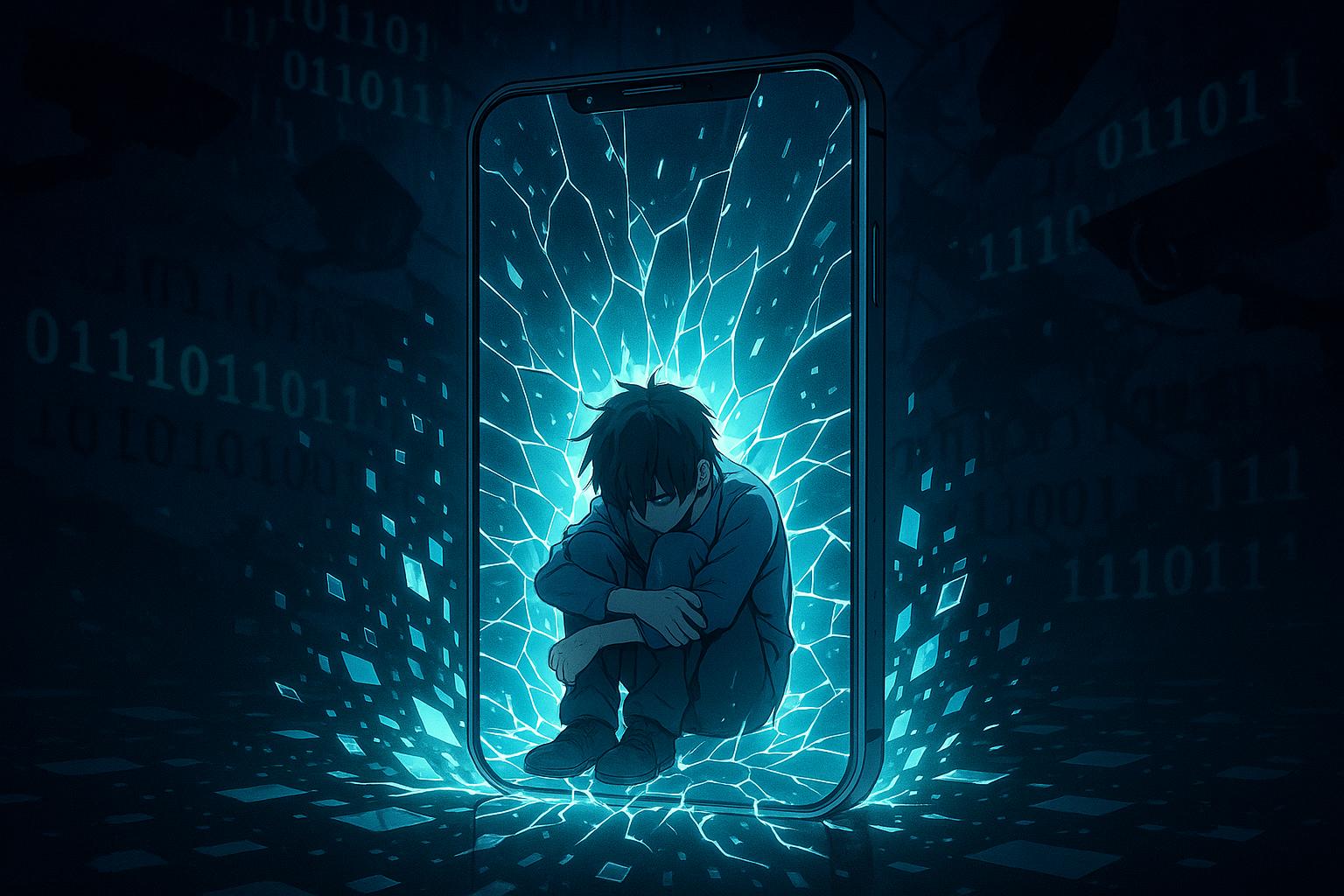Cocospy, Spyic, and Spyzie—apps known for secretive surveillance—have abruptly become inaccessible following revelations of extensive data leaks affecting millions. The developments spotlight serious security flaws, the ethical dilemmas of stalkerware, and mounting calls for stricter regulation.
Three notorious spouseware applications—Cocospy, Spyic, and Spyzie—have suddenly become inaccessible, prompting investigations into a potential data breach that may have precipitated their disappearance. Although the immediate reason for their vanishing act is unclear, the timing suggests a possible link to substantial data leaks associated with these apps earlier this year. The apps, often hidden in a grey area of legality, were marketed as tools for monitoring minors or vulnerable individuals but have frequently been used to perpetrate secret surveillance on partners and family members. Their abrupt cessation serves as a stark reminder of the ethical and legal implications surrounding such technologies.
Following a series of data exposures earlier in the year, it was revealed that Cocospy and Spyic had leaked the sensitive data of millions, including email addresses, text messages, call logs, and private photographs. A security research team found that Cocospy alone of more than 1.81 million user email addresses, while Spyic compromised around 880,000 emails. This massive data breach raised alarms not just about the legal ramifications for the creators of these applications but also about the privacy of countless unsuspecting victims.
The vulnerabilities inherent in these applications are alarming. Spyzie, which has been found to share critical security flaws with Cocospy and Spyic, leaked data affecting more than half a million Android users and nearly 5,000 iOS users. Notably, this data included not only user email addresses but also extensive personal information, exposing individuals to heightened risks of identity theft and harassment. Many victims had no knowledge of the applications’ presence on their devices, as a significant number were installed by partners or family members.
The situation has drawn scrutiny towards Amazon Web Services (AWS), which hosted the compromised data. Reports indicate that despite being alerted about the presence of this sensitive information weeks prior, AWS had not taken adequate steps to remove it from their servers. This continued hosting of stolen data raises serious questions about the responsibilities of cloud service providers, especially when they are complicit in the misuse of their technologies for illicit activities.
The implications of these data breaches extend far beyond the immediate privacy concerns. The operational model of such stalkerware apps often hinges upon anonymity, making accountability elusive. Development teams frequently operate in secrecy, complicating efforts for media inquiries or public accountability. The lifecycle of these applications often involves shutting down or rebranding in response to negative publicity, thereby avoiding repercussions associated with their unethical practices. The chronic nature of these events indicates a pervasive issue within the consumer-grade spyware industry, as violations occur repeatedly with little deterrence.
In related contexts, similar operations have faced shutdowns following data breaches. For instance, LetMeSpy, a spyware developed in Poland, confirmed its permanent shutdown this August after a data breach wiped its servers. The U.S.-based pcTattletale also closed its doors in mid-2024 following a hack and website defacement. These instances underscore a continuing trend of surveillance software operating in the shadows, often evading scrutiny until significant breaches occur.
The psychological and emotional ramifications for victims can be profound. Not only does the breach of privacy expose them to potential exploitation, but the very existence of these applications jeopardizes trust within personal relationships. As the digital landscape evolves, the use of such applications as tools of surveillance poses an increasing threat, highlighting the urgent need for stricter regulations governing the deployment and operation of monitoring software.
In conclusion, the disappearance of Cocospy, Spyic, and Spyzie raises profound questions about the ethical landscape of surveillance technology. As these applications fade into obscurity, the shadows they cast on personal privacy and security continue to loom large. The incidents act as a pressing reminder of the ongoing battle against digital invasions of privacy, urging stronger accountability and regulation to safeguard individual rights in an increasingly monitored world.
Reference Map
- Paragraphs 1, 2, 3, 4, 5, 6, 7
- Paragraph 2, 4
- Paragraphs 5, 6
- Paragraphs 3, 5
- Paragraph 6
- Paragraphs 2, 6
- Paragraph 4
Source: Noah Wire Services
- https://www.techradar.com/pro/security/these-three-stalkerware-apps-have-just-gone-dark-and-a-data-breach-could-be-to-blame – Please view link – unable to able to access data
- https://www.vpnmentor.com/news/amazon-hosting-stalkerware-victims-data/ – Amazon Web Services (AWS) is under scrutiny for continuing to host stolen data from victims of three stalkerware apps—Cocospy, Spyic, and Spyzie—weeks after being alerted to its presence. Despite notifications in February 2025, Amazon has not removed the compromised data. These apps covertly extract and upload victims’ personal data to AWS-hosted storage, exposing sensitive information of 3.1 million individuals. The spyware operations have been found to store stolen data and photos on Amazon buckets, raising concerns about the misuse of mainstream cloud providers for such activities.
- https://techcrunch.com/2025/03/19/data-breach-at-stalkerware-spyx-affects-close-to-2-million-including-thousands-of-apple-users/ – A consumer-grade spyware operation called SpyX experienced a data breach in June 2024, affecting nearly two million people, including thousands of Apple users. The breach exposed 1.97 million unique account records with associated email addresses. The data included iCloud credentials, allowing continuous downloads of victims’ backups from Apple’s servers. Despite the breach, the operators did not notify customers or those targeted by the spyware. This incident highlights the proliferation of stalkerware and its potential to target Apple customers.
- https://cyberinsider.com/spyware-apps-cocospy-and-spyic-exposed-data-of-users-and-victims/ – Cocospy and Spyic, widely used stalkerware applications, have exposed sensitive data of millions of individuals. A security researcher discovered that these apps, which share a common codebase, were leaking 1.8 million email addresses from Cocospy customers and 876,000 from Spyic customers. The leaked data also included messages, call logs, photos, and other personal information. Despite the severity of the breach, the operators have not responded to inquiries, leaving the exposed data accessible and further endangering victims’ privacy.
- https://www.certosoftware.com/insights/stalkerware-app-spyzie-exposes-sensitive-data-of-500k-users/ – Spyzie, a stalkerware app, has been found to compromise the sensitive data of more than 500,000 Android users and nearly 5,000 iPhone and iPad users. The app shares a critical vulnerability with Cocospy and Spyic, allowing unauthorized access to sensitive information, including messages, photos, call logs, and location data. The breach also exposed the email addresses of Spyzie customers. Despite the severity of the issue, the app’s operators have not commented, and the vulnerability remains unpatched.
- https://economicconfidential.com/2025/03/stalkerware-hidden-enemy/ – Stalkerware apps like Spyzie, Cocospy, and Spyic have experienced massive breaches, compromising users worldwide. Spyzie exposed 518,643 unique customer email addresses, Cocospy leaked 1.81 million, and Spyic disclosed 880,167. After removing duplicates, these breaches collectively affected over 3.2 million individuals. These incidents highlight the risks of using such apps, which are often deployed for covert surveillance, leading to potential identity theft, financial fraud, or further harassment for victims.
- https://askmeoffers.com/users-review/cocospy-com/ – A user shared a negative experience with Cocospy, Spyic, and Spyzie, highlighting issues such as software failure on newer cell phone operating systems, unhelpful customer support, and refusal to honor a 60-day money-back guarantee. The user advises others to avoid these products, emphasizing the importance of thorough research before investing in any software to prevent similar disappointments.
Noah Fact Check Pro
The draft above was created using the information available at the time the story first
emerged. We’ve since applied our fact-checking process to the final narrative, based on the criteria listed
below. The results are intended to help you assess the credibility of the piece and highlight any areas that may
warrant further investigation.
Freshness check
Score:
8
Notes:
The narrative discusses recent events involving data breaches and the shutdown of stalkerware apps, which suggests a current and ongoing issue. However, specific dates for the disappearance are not provided, which could slightly affect the freshness score.
Quotes check
Score:
10
Notes:
There are no direct quotes in the narrative, which means there’s no need to verify any quotes.
Source reliability
Score:
9
Notes:
The narrative originates from TechRadar, a reputable technology news outlet known for its coverage of tech-related issues. This generally indicates high reliability.
Plausability check
Score:
9
Notes:
The claims about data breaches and stalkerware apps shutting down are plausible and align with known issues in the surveillance software industry. The narrative provides contextual evidence supporting these claims.
Overall assessment
Verdict (FAIL, OPEN, PASS): PASS
Confidence (LOW, MEDIUM, HIGH): HIGH
Summary:
The narrative appears to be current and discusses known issues in the surveillance software industry. It originates from a reputable source and lacks direct quotes, which simplifies verification.













